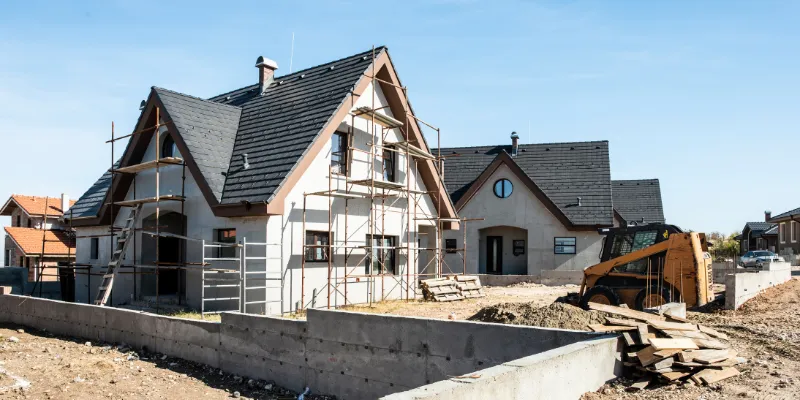
Key Takeaways
- Selling a house with unpermitted work is more common than you might think, and there are ways to handle it smoothly.
- You have options: retroactive permits, disclose and adjust price, or sell as-is
- Cash house buyers offer the quickest solution without any permit hassles.
- Honesty protects you from legal issues
- Cash buyers eliminate financing obstacles
Blog Objective
This blog explains your options for selling a house with unpermitted work and offers strategies to make the process smoother.
What Exactly Is Unpermitted Work?
Unpermitted work is any home improvement that legally required a building permit but was done without one. Understanding this is crucial when selling house with unpermitted work. Your local building department sets rules about what needs permits to keep homes safe.
Common examples include finishing a basement, adding a room, installing a new deck, upgrading electrical panels, or converting a garage into living space. Even smaller projects like adding a fence often need permits.
However, there’s a twist: just because a licensed contractor did the work doesn’t mean it was permitted. When you own the home, you own the responsibility.
Did You Know?
Each year, over 6 million U.S. homeowners complete home renovations, and studies estimate that around 25% of projects that require permits are done without them, making unpermitted work a common issue when selling a home.
Why Unpermitted Renovations Become a Problem When Selling
When selling house with undocumented work, you’ll face real obstacles.
Most mortgage lenders won’t approve loans for homes with known unpermitted work. If your buyer needs a mortgage, they’ll either walk away or demand you fix the problem first, delaying your sale by months.
Buyers get nervous about safety and hidden problems. Home inspectors’ flag unpermitted work, and your sale hits a wall.
Appraisers often won’t include unpermitted additions in valuations. Your three-bedroom house with a converted basement might only appraise as a two-bedroom, directly affecting your selling price.
You’re also facing legal exposure. Most states require disclosure of known issues. Hiding unpermitted work can lead to costly lawsuits.
Your Choices When Selling House with Unpermitted Work

You have three options, each one carrying different implications,
Option 1 – Get Retroactive Permits
Reach out to your local building authority regarding permits once it is all done. They will check on all of your work, and if things are up to code, they may be willing to grant permits in retrospect.
Option 2: Disclose and Adjust Your Price
Be honest with buyers and lower your asking price to account for unpermitted work. Some cash-paying buyers won’t mind.
The downside? You’ll get lowball offers, and you might sit on the market longer waiting for the right buyer who’s willing to take on the risk.
Option 3: Sell As-Is to Cash buyers
House buyers for cash specialize in purchasing homes in any condition, including permit issues. They don’t need mortgage approvals, so unpermitted work doesn’t scare them off.
How Fast Cash House Buyers Can Help
If you’re selling house with unpermitted work, cash house buyers offer the fastest solution. These buyers buy homes as-is, meaning you don’t fix anything or chase permits.
Here’s the process: contact a cash buyer, and they evaluate your property within days and make you a fair cash offer. Accept it, and you can close in as little as seven days. No repairs, no permits, no waiting.
Yes, you might get slightly less than market value but consider the savings. You can avoid fees and eliminate the risk of deals falling through.
House buyers for cash handle properties with unpermitted work regularly. They understand the risks and factor them into offers. They won’t judge you or back out last minute. These cash buyers make the process simple.
The peace of mind is invaluable. You can move on instead of spending months stressed about permits and whether your sale will close.
Steps to Take Before Listing Your Home
Before pursuing permits, disclosing issues, or selling to cash house buyers, please ensure you complete some preparatory work.
Record all the details of the unpermitted work, including the date, the contractor, and any associated invoices or photos.
Consider a pre-listing inspection. A good inspector identifies unpermitted work before it derails your sale.
Talk to a real estate attorney about disclosure laws in your state. Be honest with whoever you work with, transparency protects you legally.
Ready to Sell Without the Permit Stress?
Selling house with unpermitted work doesn’t have to keep you up at night. You’ve got options.
If you want the fastest solution, reach out to house buyers for cash. They’ll give you a fair offer within days and close on your schedule; permits are not required.
Whatever path you choose, remember thousands sell properties with permit issues every year. With the right approach and buyer, you can too.
Get your home evaluated today and explore your options. Start now to move forward sooner.
FAQs
Can I sell my house if I don’t know about unpermitted work?
If you genuinely didn’t know, you’re not required to disclose it in most states. However, once you become aware (through inspection or otherwise), you should disclose it. Hiding known issues can lead to legal problems.
Will unpermitted work always lower my home’s value?
Usually, yes. Buyers view it as a risk and either offer less or require fixes before closing. How much depends on the scope and local market. Minor issues might not hurt much, but major unpermitted additions can significantly reduce offers.
How long does it take to obtain retroactive permits?
It varies widely based on location and complexity. Simple projects might take weeks, while major renovations could take three to six months or longer.
Are fast cash house buyers legitimate?
Many are legitimate businesses. Do your research: look for good reviews, transparent processes, and proper licensing. Please consider obtaining multiple offers and reviewing contracts thoroughly.
